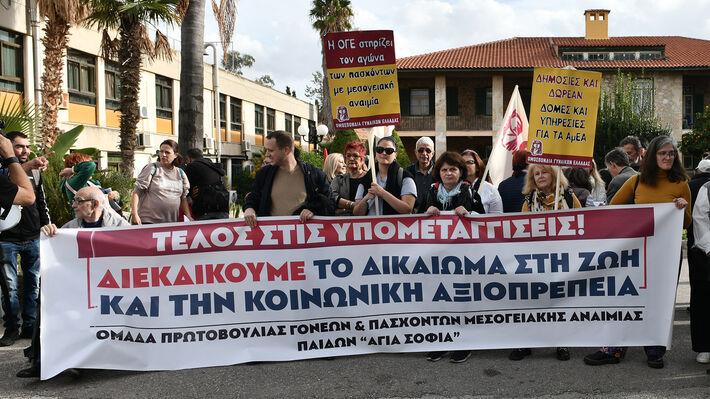Blood shortages worsen for thalassemia patients, children left suffering

In a recent announcement, both organisations reported that in the past weeks, many patients with thalassaemia have either had their scheduled transfusions postponed or have only received a fraction—just one-third (200 ml)—of the blood they require. This has forced patients and their families to repeatedly visit hospitals, anxiously hoping that they can secure the necessary treatment.
“Regular blood transfusions every 15 days are essential for patients with thalassemia,” the announcement emphasised. “When they are under-transfused, their daily lives are severely compromised—their health deteriorates, they suffer pain, and with the summer heat, the situation worsens. Children cannot play, they are at risk if they move around alone, and their overall quality of life is deeply affected.”
Iordanis Psimenos, a member of the Initiative Group for Thalassemia Patients from the “Aghia Sophia” Children’s Hospital, described the situation to the “Weekend Rooter”: “Last Thursday, we went to the Children’s Hospital for the scheduled treatment. It was the same situation again. Children are receiving far less blood than they need, which means they are undergoing transfusions twice every 10 days instead of twice a month. It’s a heartbreaking struggle, with serious consequences for their daily lives and overall well-being. At Aghia Sophia there are over 700 affected children—many more across Greece. The problem is well-known to all responsible authorities, but there is no plan for a solution. Despite promises from the Minister of Health, there has been no improvement. There is no coordination, no results, and no communication with parents and patients about the severity of the blood shortage. The public and blood donors are also not informed about these deficiencies, leaving innocent children to suffer.”
In their announcement, the two organisations called on the government to clarify whether any blood from national reserves was included in a recent shipment of thousands of blood bags sent from Piraeus to Israel. “At a time when there are critical blood shortages in our own country, these needs must be prioritised,” they stressed.
They have urged unions and mass organisations to continue organising voluntary blood donations and called on the public to donate blood. They also called for increased efforts to combat the privatisation of the National Health System, resist the government’s plans to commercialise blood, and advocate for substantial funding and mass recruitment in the public health system and hospital blood donation departments.
Where and when to donate blood:
- “Aghia Sophia” Children’s Hospital: Weekdays and weekends 09:00–14:00, plus Friday 16:00–19:00 (phone: 2107452036)
- General State Hospital of Nikaia: Monday – Friday 08:30–14:00, weekends and holidays 08:30–13:30 (phone: 2132077242)
- Laiko Hospital: Monday – Friday 09:00–15:00, weekends 09:00–14:00 (phone: 2132061035)
- General State Hospital “Evangelismos”: Until 31/8/2024: Monday – Friday 08:30–14:30, Saturday 09:00–14:00 (phone: 2132043960)
- General State Hospital “G. Gennimatas”: Weekdays 08:30–18:00, Saturday, Sunday, and public holidays 08:30–14:00 (phone: 2132034240)
- General State Hospital “Ippokrateio”: Monday – Friday 08:30–14:30, Saturday, Sunday, and public holidays 08:30–13:30 (phone: 2132088161)
______________________________________________
Are you seeking news from Greece presented from a progressive, non-mainstream perspective? Subscribe monthly or annually to support TPP International in delivering independent reporting in English. Don’t let Greek progressive voices fade.
Make sure to reference “TPP International” and your order number as the reason for payment.